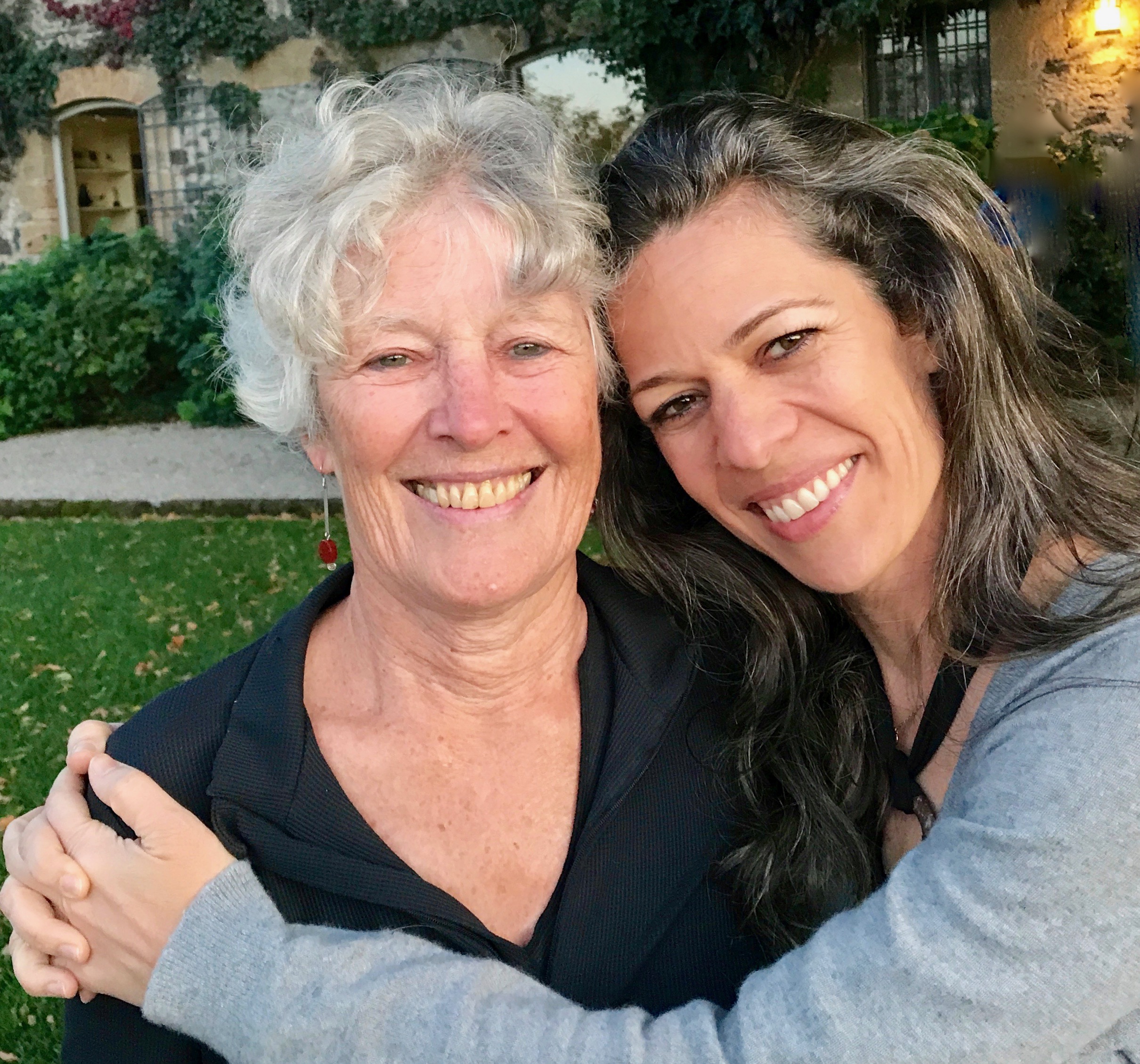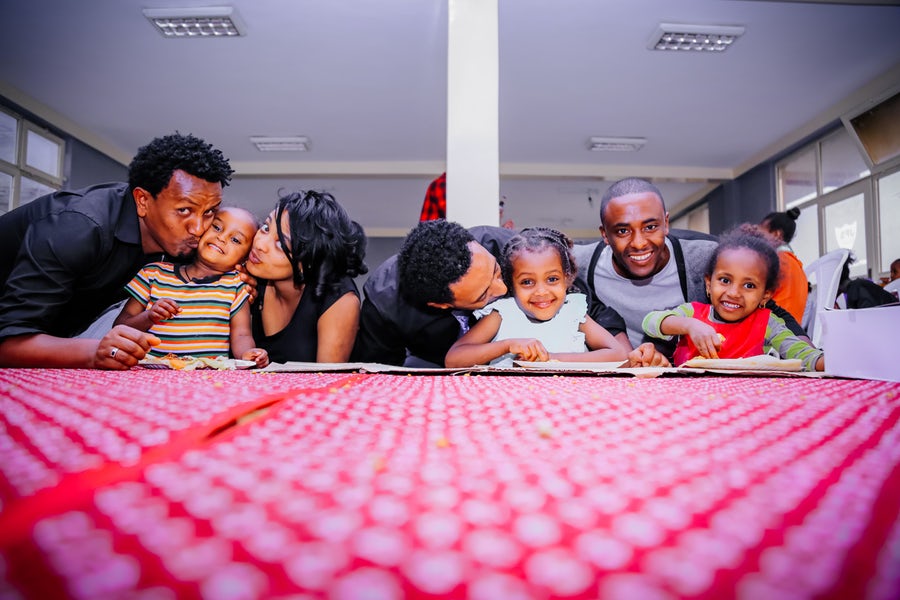
I married my mom in my first marriage.
Not literally, of course. What I mean is, the first man I married kicked up the UPB, or unfinished psychological business, I had with my mom.
Unfinished psychological business is a catchphrase for the unaddressed hurts and unmet longings we carry within us from childhood. The conscious mind dismisses old hurts as unimportant. “The past isn’t important now, ” it says. Our conscious mind believes in control. How can the past continue to impact our current relationships? At face value, it does seem odd. But our unconscious mind is powerful and has its own agenda.
As long as we dismiss, deny, and negate the impact of the past, it continues to surface, trying to share its story with us. For better or worse, old hurts get repeated in our present relationships until we see and attend to them.
I ended up divorcing my first husband after five long years of accumulated, unresolved ruptures that left us irrevocably estranged. When the man I committed to next brought the UPB I still had with my father to the surface, I was ready. That was thirteen years ago. Though my husband and I face challenges, we remain happily married, and we continue to grow together.
The Parent Marriage Hidden In the Partner Marriage
What made one of these marriages fail and the other succeed? Interestingly, it had to do with recognizing that the person I’d married had the power to awaken old hurts within me. I wasn’t as “in control” of things as I liked to think. As it happened, in my first marriage, I’d convinced myself I could avoid being hurt. This had kept me from seeing the truth.
In my second marriage, I began recognizing that there was a hidden marriage operating under the surface of the visible marriage. The hidden marriage held a powerful emotional undertow. I call the visible marriage the partner marriage and the hidden marriage the parent marriage.
Myrrha, Oedipus and Freud

Versions of the parent marriage are echoed in Greek myths. Myrrha coupled with her father and gave birth to Adonis. In Sophocles’ famous story, Oedipus inadvertently marries his own mother and brings a plague to the land he presides over as king.
In addition, many of Freud’s early theories drew their charm from this parent-marrying idea. Freud tended to focus more on the roots of aggression in his theories of children’s anger toward one parent and attraction toward the opposite-sex parent.
Observations or critiques that hint at past caregiver dynamics are often a code phrases for the parent marriage. Maybe you’ve heard them in lighthearted exchanges between spouses or in your own discussions or arguments with a girlfriend, boyfriend, or partner.
Here are examples of parent-marriage code phrases:
- I’ve always been a daddy’s girl.
- He’s a mama’s boy.
- She found someone just like her mother.
- She sees me as a father-figure but I’m looking for an equal partner.
- Stop treating me like your dad/mom!
- He’s nothing like my mom/dad, that’s why I married him.
- When she moved in, she started treating me like a child.
Imprinting Helps Us Survive
Discovering that we have metaphorically “married our parents” in the hidden parent marriage isn’t as creepy or bizarre as it seems. In fact, it’s a more nuanced and complex version of imprinting, or the process by which many young animals such as zebras or geese bond with their caregivers.
Imprinting helps us survive. When we’re born, and for many years afterward, we must bond with our primary caregivers if we want to live. Goslings follow the first creature who nourishes them when they’re born. Baby zebras recognize the unique patterns of their mother’s stripes so they know where to go for milk, protection, and comfort.

How We Grow Emotionally Healthier
Have you ever found yourself “inexplicably” drawn to someone who exudes quiet power but can’t express affection? Or fallen for someone who’s charming but only thinks about themselves? Scenarios likes these, with their emotionally contradictory elements, suggest early imprinting experiences. When a version of some aspect of an unsatisfying, neglectful, or hurtful parent-child dynamic we grew up with repeats itself with our partner, the parent marriage is often the culprit.
For humans, imprinting in infancy and childhood sets the stage for our future adult attractions. Some interpret this as meaning we’re doomed to recreate old wounds in romantic relationships. In fact, we can grow emotionally healthier when we stop denying the past issues that rise to the surface with our mates, and instead work through them consciously.

Do You Pick, Provoke or Project?
My husband and I both learned a great deal from the late Steve Slepian in Imago therapy workshops he led in New York with his wife, Carol Kramer.
“When it comes to finding mates who resemble our parents,” Steve would say, “We pick, provoke, or project.”
That is, we pick someone who is very much like our mom or dad. Often, the parallels aren’t apparent initially. Or else, we unwittingly provoke our partner into being like our mom or dad. This means we behave in ways that create a hurtful but familiar reaction from our partners. If picking and provoking don’t result in the parent marriage we’re unconsciously looking for, we resort to projecting. This is when we project characteristics onto our partner, much as a projector casts an image onto a screen.
It’s important to be willing to see how this marriage happens, despite our best intentions. Owning the parent marriage as a reality, and taking responsibility for it, means acknowledging the limitations of your conscious mind. Recognizing the parent marriage also means you’re ready to explore parts of you that are a product of deeper psychological forces.
Opening Your Inner Eyes

Seeing your parent marriage within your partner marriage begins with closing your outer eyes and opening your inner eyes.
Notice patterns and recurring emotional dynamics. Remember and admit to old hurts and access the feelings you’ve buried. Reconnect with earlier versions of yourself through journaling, therapy, coaching, creative expression, art, movement, or guided visualizations. Learn how to bring compassion to experiences in your past that felt unpleasant, lonely, or scary.
Opening your inner eyes takes guts. Not many of us make regular, willing emotional contact with our own vulnerability, helplessness, neediness, dependence, or shame. And yet these are precisely the feelings that the parent marriage unlocks within our current partner marriage or relationship.
Wholeness Lies on the Other Side
Marrying some version of our parents connects us with unresolved hurts and longings from our childhoods. Luckily, this sets the stage for the work we need to do as adults in mature relationships. As children, our job was first and foremost to survive. But once survival was ensured, our job description changed. We could focus our energies on healing, and ultimately thriving.
The parent marriage helps us look at our own lingering unmet needs. It expands us into recognizing our own strengths and limitations, and the strengths and limitations of others in our life.
Thankfully, our wholeness lies on the other side of accepting and working through our UPB.








